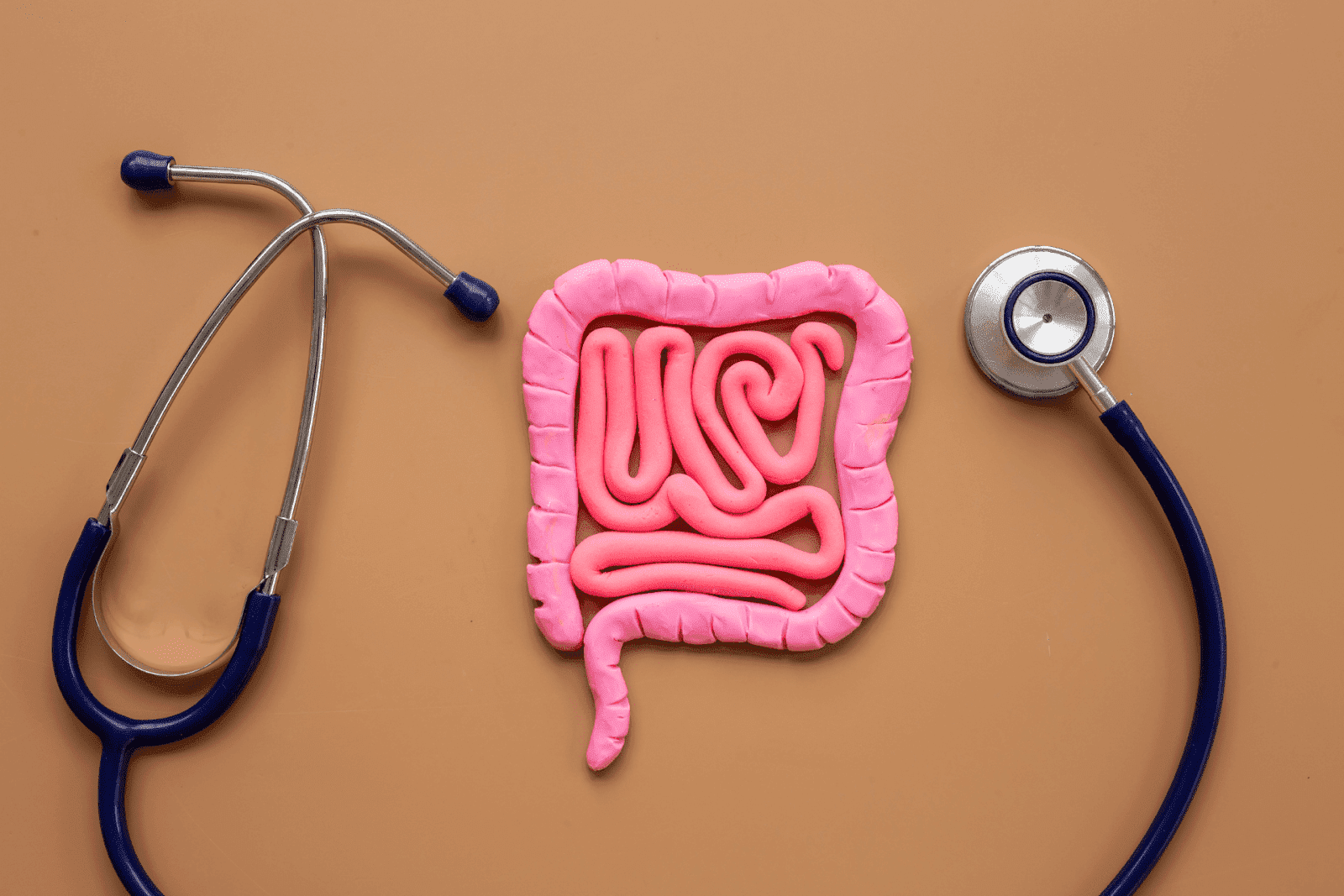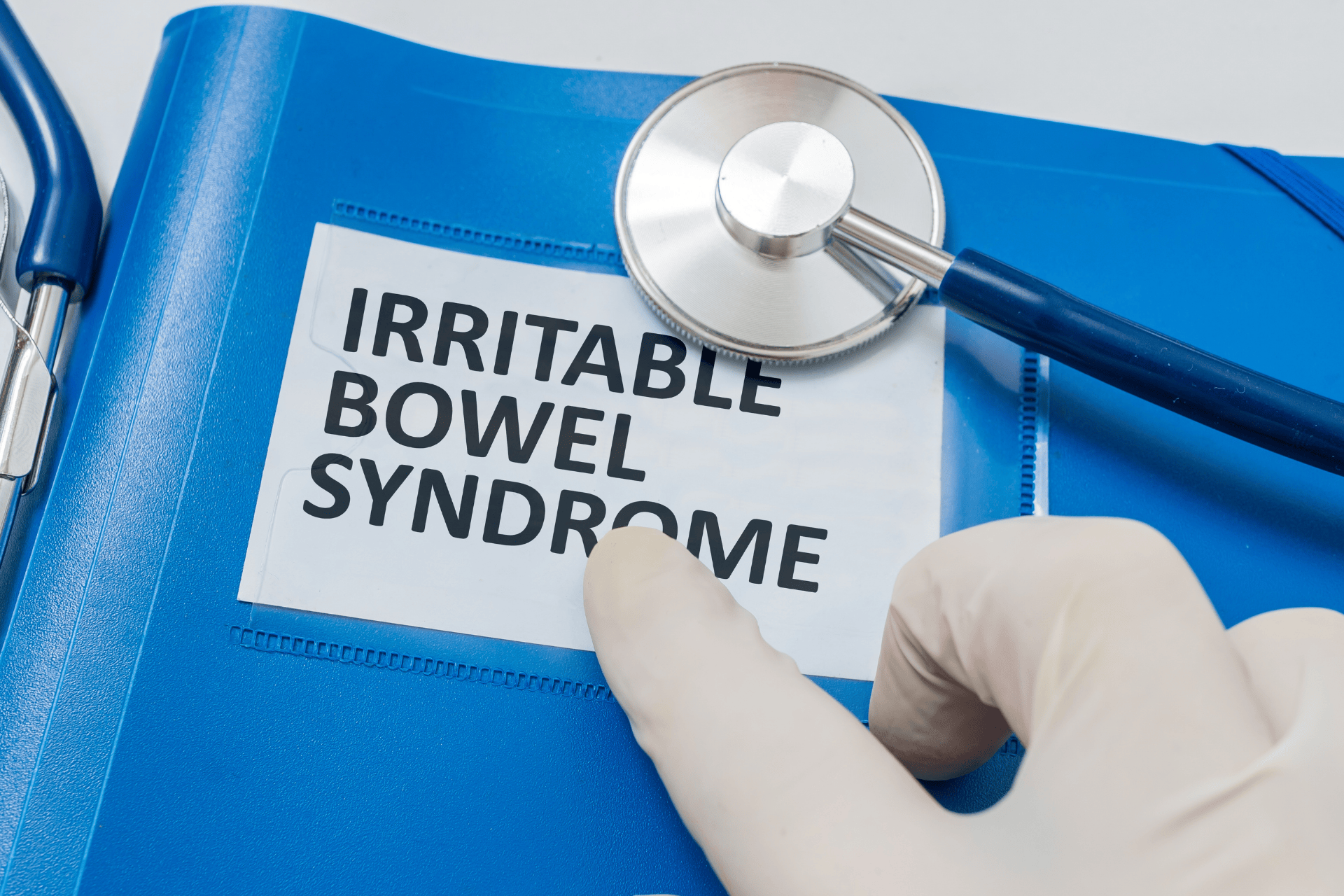4 Best Over-the-Counter IBS Medications
Irritable Bowel Syndrome (IBS) is a common gastrointestinal disorder that affects millions of people worldwide. It is characterized by symptoms such as abdominal pain, [...]
Read More
Medically reviewed by Alan Lucks | MD, Alan Lucks MDPC Private Practice - New York on November 8th, 2025.
Women develop IBS twice as often as men, with symptoms typically beginning before age 35 and often triggered by hormonal changes during menstruation.
Peppermint oil capsules (0.2-0.4ml taken 30 minutes before meals) reduce abdominal pain by 40% compared to placebo by relaxing intestinal smooth muscle.
Soluble fiber supplements like psyllium husk (start with 1 teaspoon daily) help both constipation and diarrhea by normalizing stool consistency, while insoluble fiber can worsen symptoms.
Loperamide (Imodium) should be limited to 8mg daily maximum and avoided during flare-ups with fever, as overuse can cause dangerous bowel obstruction.
The low-FODMAP diet eliminates fermentable carbohydrates and reduces symptoms in 75% of patients within 2-6 weeks, but requires careful reintroduction to identify specific triggers.
Irritable Bowel Syndrome (IBS) is a common gastrointestinal disorder that affects millions of people worldwide. It is characterized by symptoms such as abdominal pain, bloating, gas, diarrhea, and constipation. These symptoms can vary in intensity and frequency, often impacting daily life and overall well-being. The unpredictability of IBS can lead to anxiety and stress, as individuals may find themselves avoiding social situations or certain foods that they fear could trigger an episode. This can create a cycle of discomfort and emotional strain, making it essential to address both the physical and psychological aspects of the disorder.
 Common Over-the-Counter Medications for IBS
Common Over-the-Counter Medications for IBSAntispasmodic medications help reduce muscle spasms in the intestines, which can ease cramping and abdominal pain associated with IBS. These medications work by relaxing the smooth muscles of the gut, providing relief from discomfort.
Common OTC antispasmodics include peppermint oil capsules, which have natural muscle-relaxing properties. Peppermint oil is widely used and supported by studies for its effectiveness in reducing IBS symptoms, especially abdominal pain and bloating.
For those experiencing IBS with constipation (IBS-C), fiber supplements and laxatives can be helpful. Fiber supplements like psyllium husk add bulk to stool and help regulate bowel movements. They are gentle and often recommended as a first step in managing constipation.
Osmotic laxatives, such as polyethylene glycol (PEG), draw water into the bowel to soften stool and promote easier passage. These can be used for short-term relief but should be taken with caution and under guidance to avoid dependency or worsening symptoms.
Individuals with IBS characterized by diarrhea (IBS-D) may find relief with anti-diarrheal medications like loperamide. Loperamide slows down bowel movements, helping to reduce the frequency of diarrhea and improve stool consistency.
It is important to use these medications as directed and avoid overuse, as excessive slowing of the bowel can lead to complications. If diarrhea persists, consulting a healthcare professional is advised.
Bloating and excessive gas are common complaints among IBS sufferers. Simethicone is an OTC medication that helps break up gas bubbles in the digestive tract, providing relief from discomfort and bloating.
Activated charcoal tablets are another option some people try for gas relief, although scientific evidence supporting their effectiveness is limited. Incorporating dietary changes to reduce gas-producing foods often complements the use of these products.
While OTC medications can provide relief, IBS often requires a more comprehensive approach that includes diagnosis, personalized treatment plans, and ongoing monitoring. This is where telehealth services like Doctronic.ai come into play.
Doctronic.ai is revolutionizing direct-to-patient care by offering AI-powered doctor visits that are fast, smart, and personal. You can use their platform to get an initial AI diagnosis for your IBS symptoms, which can then be reviewed by licensed doctors during convenient telehealth video visits. These visits are available 24/7 across all 50 states and cost less than $40, making expert care accessible and affordable.
Using telehealth for IBS management allows patients to receive tailored advice on medication use, dietary adjustments, and lifestyle changes without the need for in-person appointments. This approach can help optimize symptom control and improve quality of life.
Choosing the best OTC medication for your IBS symptoms depends on understanding your specific symptom pattern. Here are some tips to guide your selection:
Identify your predominant symptom: Whether it is diarrhea, constipation, or pain, choose medications targeted to those issues.
Start with gentle options: Fiber supplements and peppermint oil are often good first steps before moving to stronger medications.
Monitor your response: Keep track of how your symptoms change after starting a medication and adjust accordingly.
Consult professionals when needed: If symptoms persist or worsen, seek advice from healthcare providers, including telehealth services like Doctronic.ai.
Remember that self-medicating without proper guidance can sometimes lead to complications or mask underlying conditions. A balanced approach combining OTC medications with professional input is often the most effective strategy.
 Personalizing IBS Treatment
Personalizing IBS TreatmentBefore starting any medication, it is important to understand your specific symptoms and triggers. IBS symptoms differ widely from person to person, so what works well for one individual may not be as effective for another. Consulting with a healthcare provider can help tailor the best approach for managing your condition. Keeping a symptom diary can be a useful tool in this process, as it allows individuals to track their food intake, stress levels, and symptom patterns. This information can provide valuable insights that help healthcare professionals recommend personalized treatment strategies, ensuring a more effective management plan for the unique challenges posed by IBS.
Moreover, support groups and online communities can provide additional resources and a sense of camaraderie for those navigating the complexities of IBS. Sharing experiences and tips with others who face similar challenges can be empowering and can help individuals feel less isolated in their struggles. Many find that discussing their symptoms openly helps to reduce the stigma often associated with gastrointestinal disorders, fostering a more supportive environment for healing and understanding.
Medications alone are rarely sufficient to manage IBS effectively. Lifestyle and dietary changes play a crucial role in symptom control and overall digestive health.
Common recommendations include:
Dietary adjustments: Avoiding trigger foods such as high-fat meals, caffeine, alcohol, and certain fermentable carbohydrates (FODMAPs) can reduce symptoms.
Regular exercise: Physical activity helps stimulate normal bowel function and reduce stress.
Stress management: Techniques like mindfulness, yoga, and adequate sleep can alleviate IBS symptoms linked to stress.
Hydration: Drinking plenty of water supports digestive health and helps prevent constipation.
Combining these lifestyle changes with appropriate OTC medications and professional support from services like Doctronic.ai creates a comprehensive approach to managing IBS effectively.
IBS can be a frustrating and persistent condition, but advances in healthcare technology are making it easier to manage. Doctronic.ai offers an innovative blend of AI and human expertise, providing fast, reliable, and personalized care at your fingertips.
By leveraging AI-driven insights and accessible telehealth consultations, patients can make informed decisions about OTC medications and other treatments, improving outcomes and enhancing quality of life.
Ultimately, the best approach to IBS is one that combines effective symptom relief, lifestyle adjustments, and ongoing medical support. Over-the-counter medications are a valuable tool in this toolkit, especially when used thoughtfully and in conjunction with expert guidance.
Ready to take control of your IBS with the most advanced care available? Doctronic is here to change the way you manage your health. With our AI-driven platform, you get free, immediate, and personalized medical insights, followed by the option for affordable telehealth consultations with our dedicated doctors. Over 10 million people have already experienced the Doctronic difference. Don't wait in line or settle for generic advice. Skip the line. Talk to an AI Doctor Now, for free.
Effective IBS management requires matching the right medication to your dominant symptoms—antispasmodics for pain, fiber for bowel irregularity, and anti-diarrheals for loose stools. Combining targeted treatments with dietary changes and stress reduction provides the best long-term symptom control. If you're struggling with persistent abdominal pain or bowel changes, Doctronic can help you determine the most appropriate treatment approach.
Irritable Bowel Syndrome (IBS) is a common gastrointestinal disorder that affects millions of people worldwide. It is characterized by symptoms such as abdominal pain, [...]
Read More